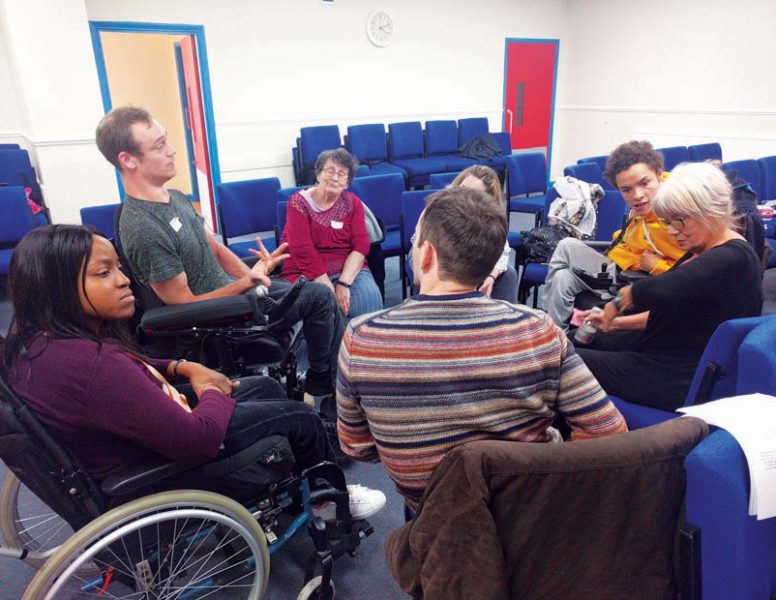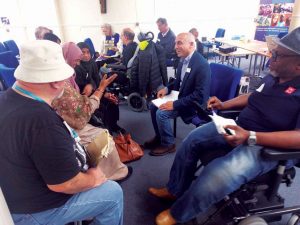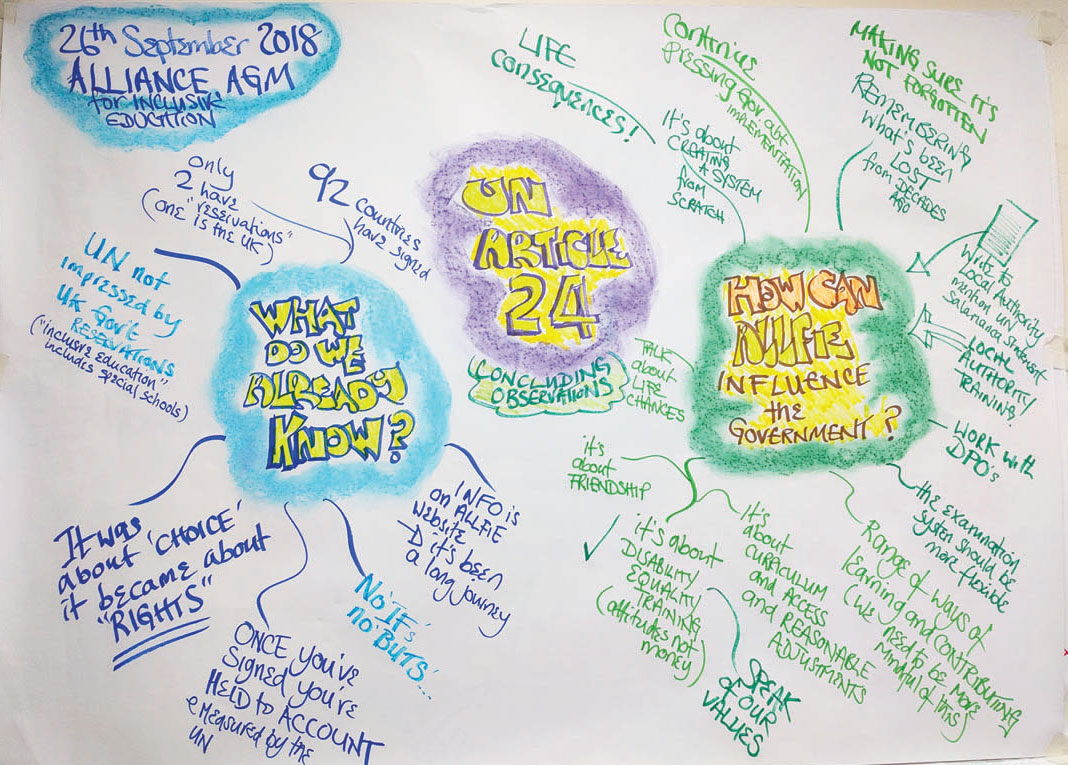Article 24 workshop
Do YOU know what Article 24 is? Maybe you have heard of it but think it sounds a bit technical? In full it is Article 24 of the UN Convention on the Rights of People with Disabilities (UNCRPD) and it deals with education. It guarantees the right of Disabled learners to be in mainstream education […]

Do YOU know what Article 24 is? Maybe you have heard of it but think it sounds a bit technical? In full it is Article 24 of the UN Convention on the Rights of People with Disabilities (UNCRPD) and it deals with education. It guarantees the right of Disabled learners to be in mainstream education with the right support.
ALLFIE’s AGM in September this year included a workshop on Article 24. We were interested to find out what people actually know about it. Do they know what it means? And, importantly, how do they think we should be using it to put pressure on the government? Here’s what they said.
What do you know about Article 24?
One participant reported being in New York when the UNCRPD was being drawn up. She recalled that many Disabled people’s organisations were present, but very few were advocating for inclusive education. Originally inclusive education was just going to be included in the convention as a choice, not a right, but as negotiations continued more and more organisations came round to the understanding that it should be a right.
Our workshop participants mostly knew that the UK has put a reservation on Article 24 which states that Disabled children can be sent to segregated settings and that other countries had not. They expressed some scepticism though – just because countries have signed the convention doesn’t mean they put all of it into practice. The Netherlands was cited as a poor example of Article 24 implementation, and at the other end of the scale Italy and Spain have around 0.2% of Disabled children in segregated settings. However people felt that although Article 24 was not enforceable, it did mean countries could be held to account.
Participants also felt that making Article 24 a reality required a lot of change – principally a change in understanding and knowledge, and that people in the system should be starting to ask “What barriers do we as an education system put in the way of Disabled people?” Although people may have the best of intentions, if they don’t have the knowledge of good practice they will not be able to make inclusive education a reality.

How can we put pressure on the government to implement Article 24?
Many participants talked about how important parents are in shaping the climate of public opinion and debate: “We have to recognise the power of the parent”. Therefore getting parents on side is critical to creating change in the system. One participant had found that where parents are strong advocates of special schools they do at least support the right for a Disabled child to be in mainstream if that is their choice. Everyone was in agreement that where parents want their child to go to a special school this comes from having received a lack of support in mainstream: “It’s not a desire for segregation, their needs have not been met.” Parents may have a perception that their children are safer in special schools, despite the history of abuse in segregated settings, and some may have low expectations of their children’s futures: “My child’s going to live a different life anyway”.
Again the issue of a change in attitudes came up: “We don’t see segregation of Disabled people as unfair, why is that?”
Participants felt that in attempting to influence the debate we should continue to talk about our experiences, to present case studies and talk about how our educational experiences affect our life chances. For change to happen, Disabled students also need to be represented in the system, and the aspirations of Disabled people to enter the teaching profession should be met.
At Westminster level, as well as continuing to question the government about implementation of Article 24 and continuing to write to the Education Committee, participants felt we should challenge other education policies, such as the policy of constant exams and assessments, which drives bad practice in the classroom, as it reduces learning methods and different ways learners can participate.
For me, the message coming out of this workshop was one I’ve encountered in talking to people about inclusive education before – that to make it happen, everyone needs everyone else to understand it and to be on board – not just government and politicians but teachers, heads, parents and young disabled people themselves, and that applies as much at a political level as it does in schools.
Jess Cahill
![Allfie [logo]](https://www.allfie.org.uk/wp-content/themes/allfie-base-theme/assets/img/allfie-logo-original.svg)




